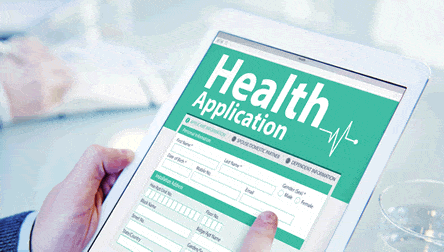Why Choose Us
- Ranked in the top 20 law firms by Trustpilot
- Nationwide Legal Coverage
- Free Consultation
- Fixed Fee Terms
- Competitive Rates
- Flexible Payment Plans
- Trusted Legal Care
- UK’s Leading Motoring Solicitors
4.8 out of 5
Our customers rate us
“EXCELLENT”
AS SEEN ON

07.09.2015
Am I Fit to Drive? Things you MUST tell the DVLA if you suffer health problems

It’s fair to say that when it comes to health issues that may affect someone’s ability to drive, the responsibility lies very firmly with the driver.
And in most cases it really is a case of better to be safe than sorry.
So if you’ve had, or currently suffer, from a medical condition or disability that may affect your driving the emphasis is on you to tell the DVLA.
Yet many drivers don’t want to face-up to the responsibilities they have, choosing instead to keep quiet and hope for the best.
But if you are still driving, despite knowing, or being advised that you shouldn’t, the results can be serious and you may even find yourself facing criminal charges.
So as it stands, here is the key information you should know if you feel you have a condition that affects your ability to drive.
According to the DVLA you must inform them if you have a driving licence and you develop a ‘notifiable’ medical condition or a condition or disability that has got worse since you got your licence.
The problem is, the information given is rather vague.
The DVLA website states that these should be conditions that could affect your ability to drive safely. It lists epilepsy and strokes, but also ‘physical disabilities,’ ‘visual impairments’ and ‘other neurological and mental health conditions.’
The DVLA urges drivers to contact them if they have any medical conditions that may affect their ability to drive.
But there are no set rules that cover all ailments as a whole, instead it is more case specific. So basically, if you feel you have a medical condition that may impact on your ability to drive, you’re better off telling the DVLA now.
The DVLA does have a list on its website that covers a range of ailments and disabilities that may affect someone’s ability to drive.
That should help drivers decide whether they need to contact the DVLA.
The DVLA will usually make their decision within 6 weeks of you contacting them. But if the process takes longer, they will more than likely write to you and inform you.
It is possible that they may contact your doctor or consultant and arrange for you to be examined.
Or, they might ask you to take a driving assessment, or an eyesight or driving test. However, you can usually drive while DVLA are considering your application.
DVLA will assess your medical condition based on what you have told them, and also from any tests and assessments that might have been carried out.
There are usually three outcomes.
One is that you are issued with a new licence which is valid for a shorter period of time before it expires. You will then have to re-apply for a new licence when this period has expired.
The DVLA may suggest they you need to adapt your vehicle to make it safer to drive.
It may be, however, that you are told you need to stop driving with immediate effect and surrender your licence.
You must surrender your licence to DVLA if your doctor tells you that you are no longer fit to drive because of your medical condition.
This can also happen if you don’t currently meet the required standards for driving.
However, if you surrender your licence voluntarily, it may mean you can start driving again sooner once you are deemed fit to get back behind the wheel.
If you continue to drive with a medical condition, either physically or mentally, you could be fined up to £1,000 if you don’t tell DVLA.
In a word, yes.
Driving when knowingly suffering from a medical condition that significantly impairs the offender’s driving skills can carry a charge of Dangerous Driving.
This offence can result in a minimum driving ban of 12 months and even a 2 year prison sentence, and in addition, you would also be required to undertake an extended driving test before getting your licence back.
Senior Solicitor at Caddick Davies Hojol Uddin appeared on the Stephen Nolan Show on BBC 5 Live on Friday August 28th to discuss the subject of drivers declaring health issues which might affect their driving.
You can listen to the show by clicking here.
Why Choose Us
We have been successfully representing clients in motoring courts nationwide
Contact us for a free consultation, our expert solicitors will be able to discuss your case and advise on legal options.
Birmingham
Bradford
Bristol
Carlisle
Cardiff
Chelmsford
Huddersfield
Hull
Manchester
Liverpool
Leeds
London
Newcastle
Norwich
Nottingham
Sheffield